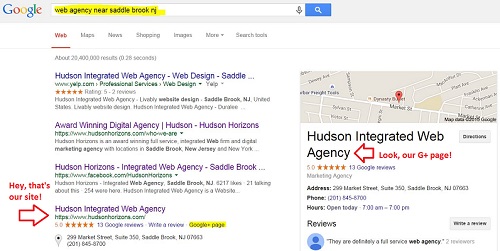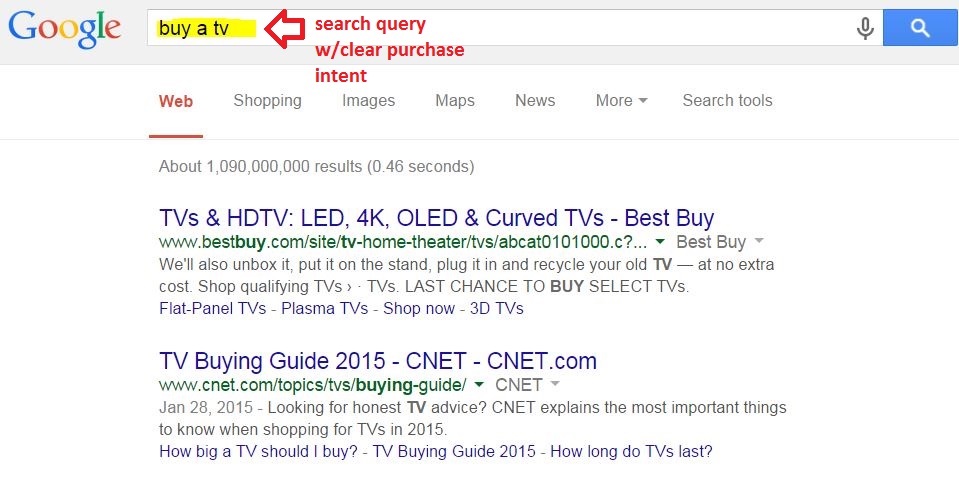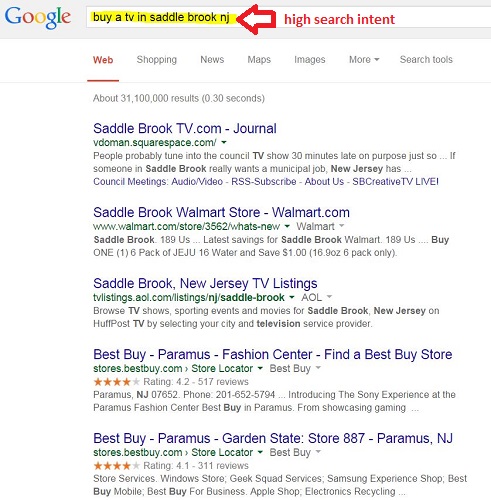One of the biggest struggles for any local business is how to get more visibility on search in order to get people to visit their storefront or give them a call. Now for the most part, the problem stems from not having a good SEO strategy in place - after all, low search visibility equals bad SEO, right? However, for local businesses, the issue becomes more granular when we start talking about how to optimize your website specifically for local users.
Before we dive into exactly what factors are actually affecting your local SEO and search engine rankings, let me tell you a story. When I was young, I used to live in my aunt’s house. The house had a big, dark basement that I hated going to, primarily because I was always afraid that the dolls down there would come to life and get me (a rational fear in any child’s mind, right?).
However, I do remember having to go down to the basement every so often to grab one of these:

Remember thumbing through these things? With all information available literally at the tip of our fingers, physical phone books have been rendered essentially obsolete, replaced by search engines and web versions of phone books.
How, then, are local businesses supposed to get found by people in their area? Two words: local SEO. Let's go over the 7 factors you'll need in order to rank well on local searches.
#1: Local Content
Google’s emphasis on eliminating thin and spammy content has made it extremely important for any good digital marketing strategy to incorporate quality content worth reading and sharing. SEO, in particular, depends upon content, because it gives people something good to read, share, and distribute while also giving search engines fresh content to crawl.
Your local SEO strategy should therefore hinge upon creating and publishing quality on-site content and resources on local-specific topics. Here's why:
- It gives local consumers a reason to come back to your website
- It gives search engines local keywords with which to associate your business
#2: Google My Business
When Google first introduced Google+ 4 years ago, it was intended to be the social component underlying their search services. However, though the amount of Google+ users grew, engagement on the platform couldn’t quite compete against social giants like Facebook and Twitter.
However, though it’s not popular with consumers, I’ve said it before and I’ll say it again. Google+ is probably the most important social media platform for local businesses. Here’s how I know this:
- Google streamlined their local business pages to Google My Business last year
- Google launched their Get Your Business Online initiative just a couple of months ago, which urges local businesses to create a Google My Business page
Google is clearly making a push for local businesses to create local Google+ business pages, which is a good indication that they’re factoring in your Google+ profile in their local search algorithm. Additionally, when users search for local businesses, the top half of search is typically occupied by a list of Google+ pages.
In other words, when a person types a local search query into Google…

Your Google My Business page will appear.

As you can see, Google is using the information you have on your Google My Business page to match your business to the user’s local search query.
Google+ is thus the perfect integration between social and search and greatly impacts your local SEO. Tweet this
#3: Online Reviews
According to a study done last year of local consumer habits, 88% of consumers polled have used online reviews to judge the quality of a local business.
That’s insane – but logical. People like things liked by other people, so it makes sense that people’s purchasing decisions are affected by the opinion of others.
In addition, Google has become more sophisticated in pulling structured website data – like star ratings – and displaying it as rich snippets directly on search, like so:


This star rating display heavily influences whether a person decides to click through to your website from search. Online reviews are thus a core component of your local SEO strategy.
It is paramount that you not only provide a stellar customer experience but also ask your customers to leave you a nice review on your local pages. Tweet this
These pages include Google My Business, Yelp, YP, Facebook, and any other relevant directory that’s driving traffic to your website.
For instructions, check out my handy dandy blog on how to leave a Google+ review.
#4: Local Citation Consistency
In simplest terms, a local citation is any online business listing – like your Google My Business, Yelp, and YP pages, just to name a few. So when I say “local citation consistency,” I really mean that all of your online business listings must display the same name, address, and phone number as on your website.
This is particularly important for businesses that have moved locations or rebranded. Otherwise, how can you expect consumers to know who you are, where you’re located, or how to contact you? Similarly, how can search engines associate all of your online citations with your businesses if your information doesn’t match up?
Local citation consistency is a basic (but necessary) part of any local SEO efforts. Tweet this
#5: Searcher-Business Distance & Relevancy
Google is all about relevant results. Therefore, if you’re local, they will only display your business if your address is near the user’s point of search.
Of course, if users are searching for broad local keywords like “NJ” instead of hyperlocal keywords like “Saddle Brook, NJ,” Google will factor in a user’s search query and search intent, along with proximity of business to the point of search. What do I mean by that? Let’s break it down.
A search query is the stuff people type on search, like this:

If your website, content, and overall online presence are structured properly for SEO, you can appear for a user’s search query.
Search intent, however, connects a user's search query with their stage in the buying cycle. In other words, Google will display a local business if it thinks that your services match the user's purchasing needs at the time and location they need it.
Here’s an example of a broader search query done with my location targeting on to Saddle Brook, NJ:

Here, the top results are links to Best Buy's different TV models and CNET's TV Buying Guide, because Google understands that my search intent at this point is to research TVs, not to buy.
Here’s another search query example:

Here, my search intent is to find a TV store near me because I'm ready to buy now. Granted, the 1st and 3rd results are a wash since they're not TV stores (I never said Google is perfect), but the other results above the fold are businesses in Saddle Brook, NJ selling TVs.
That’s what I mean by search query, search intent, and proximity of business to users’ search location. Google assumes that local users want local content, and they will thus only display content most relevant to a user's location and service needs.
#6: Proper business categorization
Most online directories give you the option of tagging your business with a service category. Choose wisely!
Search engines can – and will – use this category to match your business with a user’s search query and service needs. Therefore, your category must not only reflect what your specific business services are but also how you think your ideal customer would search for you.
For example, if you sell electronics, you wouldn’t categorize yourself as a shopping center; you’d probably select Electronics store.
Remember: Local SEO depends heavily upon accuracy, relevancy, and specificity. Tweet this
#7: Local inbound links
Of course, we can't talk about SEO without talking about inbound links. Inbound links are any external links pointing back to any page on your site, and Google uses them to measure your site authority. Inbound links essentially tell Google that your site or your content is so cool that others want to link to you. For local SEO, it's incredibly beneficial to obtain local inbound links, as it's just another way for users and search engines to associate your business to that location.
Here are some examples of local links you can get:
- Getting featured in local newspapers
- Find local chamber of commerce
- Local business directories
- Leveraging other local vendors/partners/businesses
Of course, you must have noteworthy content in order to get these editorial inbound links. However, it's an incredibly powerful SEO factor in ranking well on local search to have another local website linking to you, as it’s just another indication that your business is a high authority in that area.
Bonus Local SEO Factors!
Just because you’re implementing a local SEO strategy doesn’t mean you should forget about the basics. Here are other SEO factors that influence your search engine rankings, including (but not limited to):
- Domain authority of website
- Page authority of landing page URL
- Click-through Rate (CTR) from organic searches
- Quality and authority of inbound links
- Localized meta data
- Social media authority
- User experience (particularly on mobile)
Do you have a local SEO strategy?
If you're a local business, it's incredibly important for you to consider how you appear on search, particularly if you're trying to attract and gain local customers. Even if you're ranking well without a local SEO strategy in place, it's still necessary to create and implement one, as basic local optimization can provide dramatic results for your business's bottom line. So, are you ready to rank well on local search?